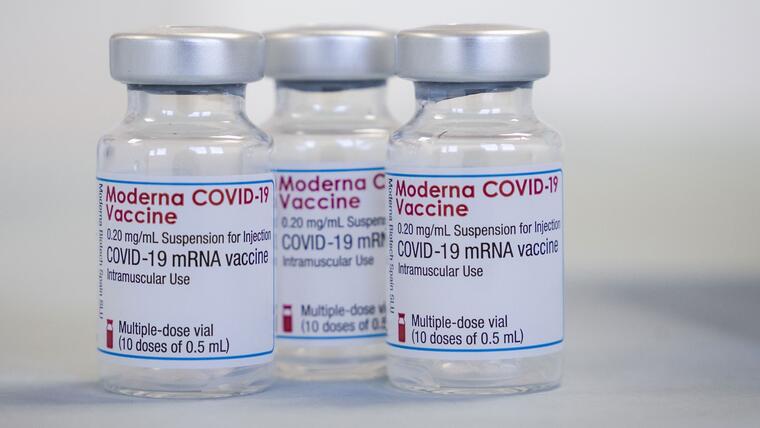US regulators on Thursday strictly limited who can receive Johnson & Johnson's COVID-19 vaccine due to a rare but serious risk of blood clots.
The Food and Drug Administration (FDA) said the shot should only be given to adults who are unable to receive a different vaccine or have specifically requested the J&J vaccine.
[WHO raises deaths from COVID-19 to 15 million, triple official records]
Officials have recommended that Americans starting their COVID-19 vaccines use the Pfizer or Moderna shots instead.
Bottles with the Johnson & Johnson COVID-19 vaccine, in a file photo. David Zalubowski / AP
FDA officials said in a statement that they decided to restrict J&J's vaccine after revisiting data on the risk of life-threatening blood clots within two weeks of vaccination.
[“They just keep coming”: Hospitals report more cases of unusual liver damage in US children]
The Centers for Disease Control and Prevention (CDC) recommended prioritizing injections from Moderna and Pfizer over those from J&J due to their safety concerns.
Moderna's vaccine against COVID-19 is 51% effective in children aged 6 months to 2 years
April 29, 202201:39
Previously, officials had viewed all three vaccines as effective and safe options because each had been shown to offer a high level of protection.
However, follow-up studies have consistently shown a lower efficacy of the J&J vaccine.
And while blood clots following J&J injection are rare, officials say new cases continue to crop up.

